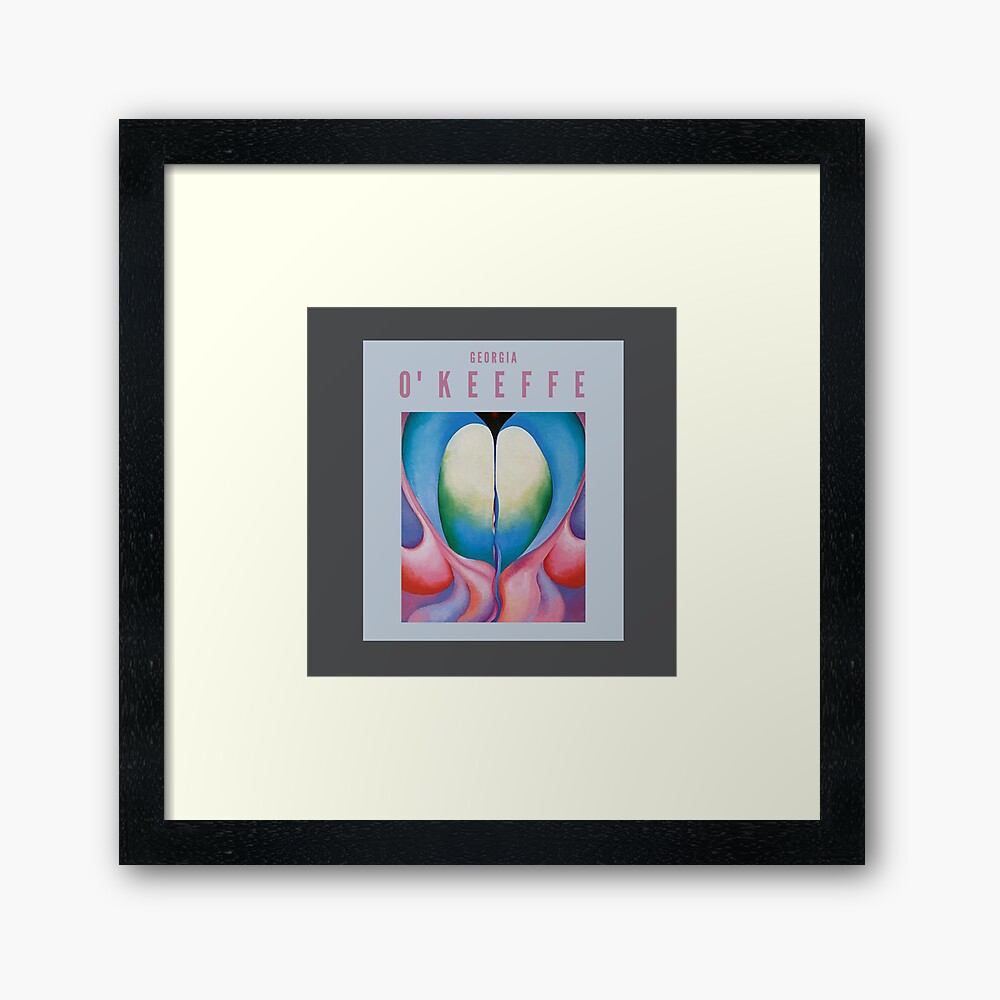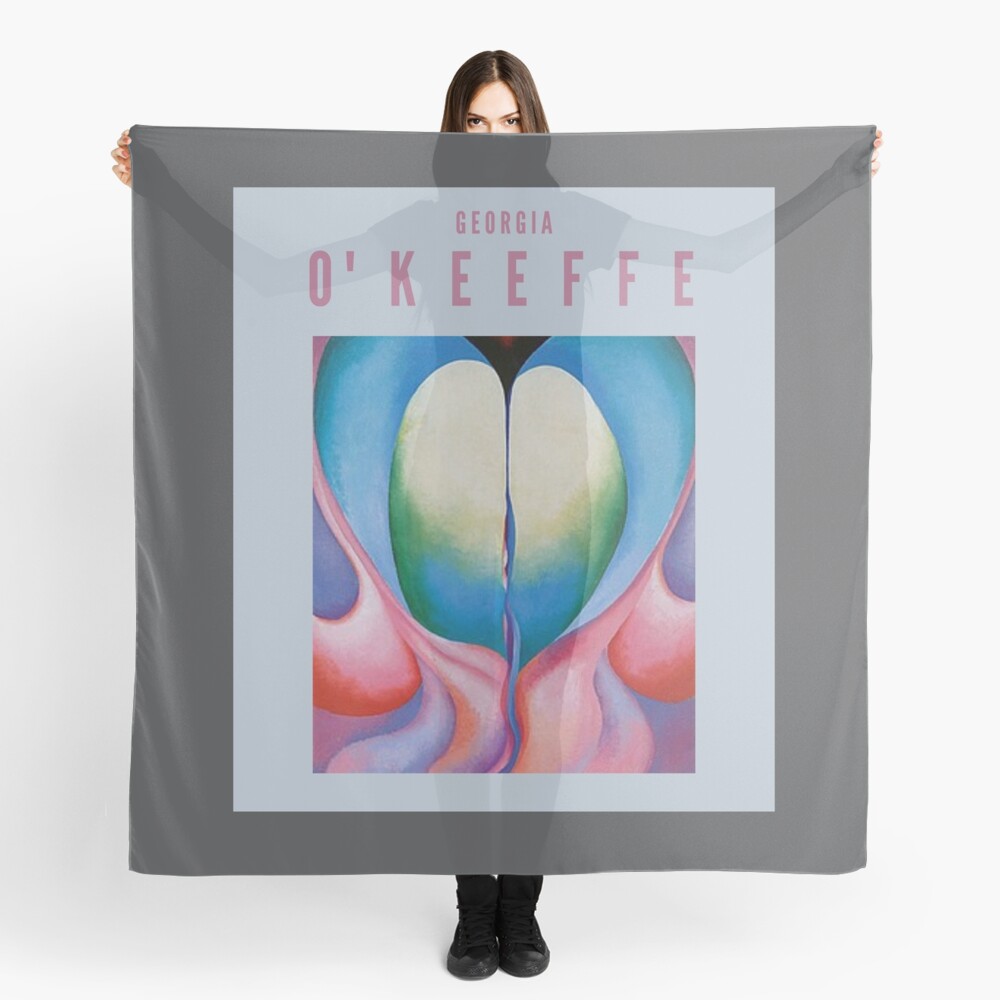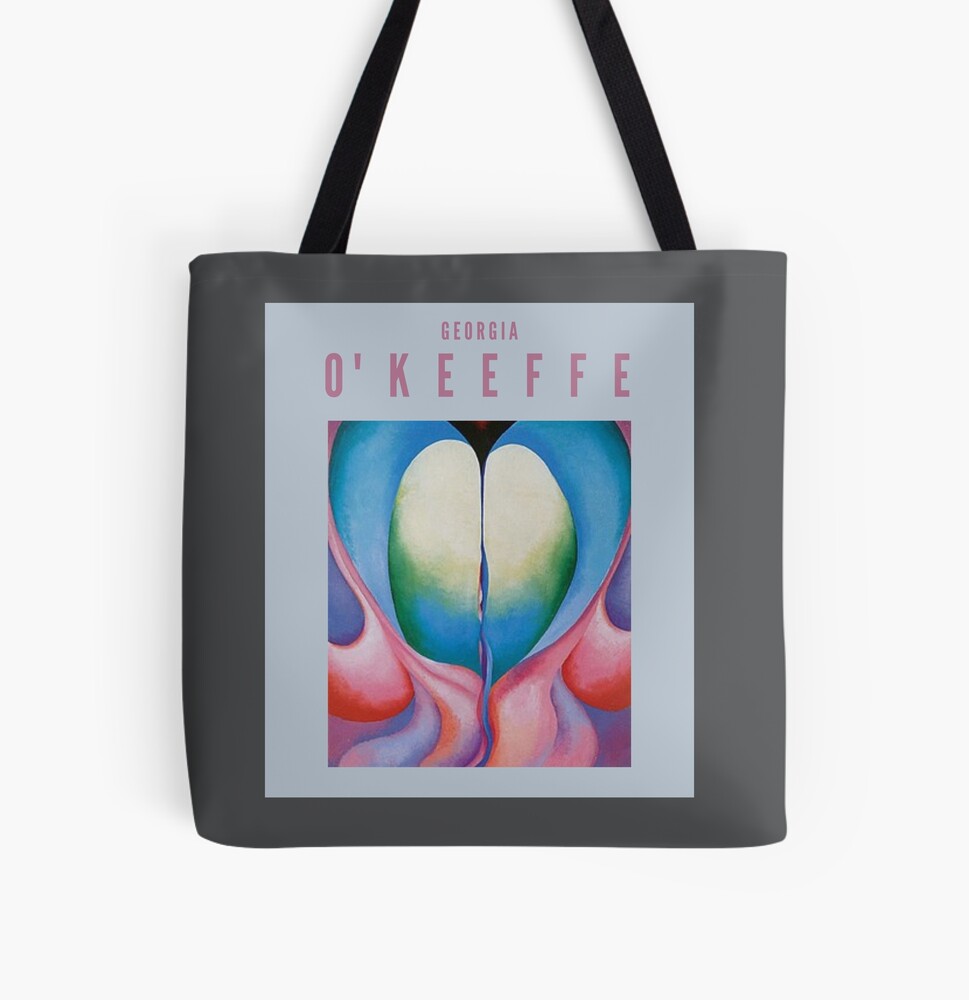Georgia O’Keeffe (1887-1986) was an American artist renowned for her distinctive paintings of flowers, skyscrapers, and southwestern landscapes. Often called the “Mother of American ModernismThe term Modernism refers to a global movement in society and culture which sought the departure from traditional forms of thinking in favour of the creation of new forms of art, philosophy, and social organisation. Reflecting the transformations in western society during the late 19th and early 20th centuries and the newly emerging industrial world provided the impetus to depart More,” her work is characterized by its bold colors, innovative compositions, and an abstract yet deeply personal interpretation of her subjects.

Early Life and Education
Born in Sun Prairie, Wisconsin, O’Keeffe showed an early interest in art. She studied at the Art Institute of Chicago and the Art Students League in New York. Her formal training provided a strong foundation in traditional techniques, but her later studies under Arthur Wesley Dow encouraged her to experiment with composition and abstraction.
Key Influences and Early Work
- Arthur Wesley Dow: His emphasis on design and personal expression profoundly impacted O’Keeffe’s development as an artist.
- Alfred Stieglitz: The prominent photographer and gallery owner who later became her husband. Stieglitz championed her work, providing her with a platform to reach a broader audience.
In 1916, Stieglitz exhibited O’Keeffe’s work in his New York gallery, marking the beginning of her rise to prominence in the American art scene.
Artistic Style and Themes
O’Keeffe’s style is marked by its vibrant colors, fluid lines, and innovative use of scale. Her work often blurs the lines between realismRealism is an art movement that emerged in the mid-19th century, emphasizing the depiction of subjects as they appear in everyday life. It rejects the idealized forms and dramatic expressions of Romanticism, focusing instead on accuracy, truthfulness, and the mundane aspects of the human experience. Realism strives to capture the world in a straightforward and unembellished manner. Gustave Courbet, The More and abstraction, focusing on the essence of her subjects rather than their literal representation.
- Flowers: Perhaps her most famous works, O’Keeffe’s large-scale flower paintings magnify the details of petals and stamens, transforming them into almost abstract compositions. These works challenge viewers to see familiar forms in new ways.
- New York Skyscrapers: In the 1920s, O’Keeffe’s paintings of New York City skyscrapers captured the modernist spirit of the era. Her work during this period reflects a fascination with the geometric forms and dynamic energy of urban life.
- Southwestern Landscapes: After moving to New Mexico in the late 1920s, O’Keeffe’s work took on a new dimension. She depicted the rugged landscapes, bleached animal bones, and adobe buildings of the Southwest with a unique sensitivity to color and form.

Notable Works
- “Jimson Weed/White Flower No. 1” (1932): One of her most iconic flower paintings, known for its bold composition and vibrant colors.
- “Radiator Building—Night, New York” (1927): This work captures the architectural grandeur and nocturnal glow of a New York skyscraper.
- “Black Mesa Landscape, New Mexico/Out Back of Marie’s II” (1930): A striking depiction of the New Mexico landscape, showcasing her ability to convey the stark beauty of the desert environment.

Legacy and Impact
Georgia O’Keeffe’s work has had a lasting impact on American art. Her bold, innovative style and her ability to imbue familiar subjects with new meaning have inspired generations of artists. She broke new ground for women in the art world, becoming one of the most celebrated artists of the 20th century.
Her influence extends beyond her paintings; O’Keeffe’s life and work have been the subject of numerous exhibitions, books, and films. The Georgia O’Keeffe Museum in Santa Fe, New Mexico, is dedicated to her legacy and houses a significant collection of her works.

Key Concepts
- ModernismThe term Modernism refers to a global movement in society and culture which sought the departure from traditional forms of thinking in favour of the creation of new forms of art, philosophy, and social organisation. Reflecting the transformations in western society during the late 19th and early 20th centuries and the newly emerging industrial world provided the impetus to depart More: O’Keeffe’s work exemplifies the principles of American ModernismThe term Modernism refers to a global movement in society and culture which sought the departure from traditional forms of thinking in favour of the creation of new forms of art, philosophy, and social organisation. Reflecting the transformations in western society during the late 19th and early 20th centuries and the newly emerging industrial world provided the impetus to depart More, with its emphasis on abstraction, experimentation, and personal expression.
- Scale and Perspective: Her use of exaggerated scale and close-up views invites viewers to see everyday objects in a new light.
- Connection to Nature: A deep appreciation for the natural world is evident in O’Keeffe’s work, from the delicate intricacies of flowers to the expansive vistas of the desert.
Sources




